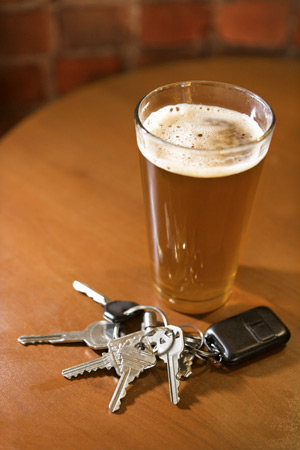Driving and Autos: Driving Under the Influence
Drunk Driving Laws
The World Health Organization estimates that 26,000 people die annually in car crashes in Thailand, of which more than 40 percent are due to drunk driving. Some estimates within Thailand are even higher, with up to 60 percent of road accidents in holiday periods being related to the consumption of alcohol. Accurate statistics are difficult to obtain as there is a shortage of Breathalyzer tests nationally and many drivers involved in accidents are not routinely tested.
Sobriety Test
If you are stopped by the police under the suspicion of drunk driving, you are required to take a Breathalyzer test. Not all police vehicles carry the required testing equipment, and it may be necessary to be taken to a police station or hospital where a blood alcohol test can also be undertaken. Motorists who refuse to take an alcohol breath test after being stopped by police are automatically regarded as drunk and detained for extensive questioning. If convicted by a court of law your driver’s license can be suspended for five years.
Drunk-driving checkpoints are very common in urban areas particularly during periods such as the Songkran holiday.
Penalties for Driving Under the Influence
You are considered legally intoxicated in Thailand, when you have a blood-alcohol level of 0.05 percent (50 mg alcohol per 100 ml or higher). A lower limit of 0.02 percent (20 mg alcohol per 100 ml or higher) applies to new drivers within two years of passing their driving test. Fines for impaired driving range between 4,000 and 6,000 baht and in the most serious cases, up to three years in prison.
In an attempt to shame drunk drivers the Thai police and courts have used novel methods such as placing offender’s photographs on police Facebook pages. Other drivers have faced community service sentences that have involved assisting in trauma wards where victims of road accidents are treated.
The minimum legal age to drive automobiles in Thailand is 18. A person can legally drink alcohol from the age of 20.
Drug Laws
Although police do not routinely carry drug testing equipment, some academic studies have concluded that as many as 10 percent of the vehicles on the roads of Thailand are being driven while under the influence of drugs. If a driver passes a Breathalyzer test the police can still ask drivers to undergo a series of tests including walking a straight line, standing on one leg, holding their heads back and touching their noses, and closing their eyes and estimating when 30 seconds have elapsed. The test results allow police to make a determination of the driver’s ability to drive, but drivers currently have the right to refuse to participate.
Social Attitudes toward Drinking
Despite having a religious and traditionally non-alcohol consuming culture, the consumption of alcohol has been increasing steadily in Thailand in recent decades. There has been a transformation in attitude and behavior toward alcohol in Thailand, which can be traced to factors such as Westernization, modernization, and consumerism in Thai society. The enormous social changes occurring in Thailand have brought problems such as the issue of drunk driving.
Drunk driving is yet to achieve the same social taboo as it receives in neighboring Asian states, and there is a perception that police are under-resourced to tackle the issue and can be persuaded to let offenders go without charge. There is particular concern that drunk driving laws are not applied consistently among locals and foreigners.
Article written for World Trade Press by Paul Giess.
Copyright © 1993—2025 World Trade Press. All rights reserved.

 Thailand
Thailand 